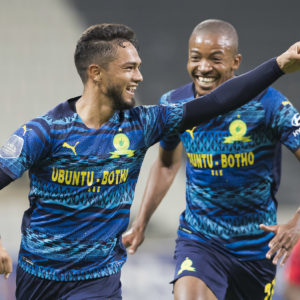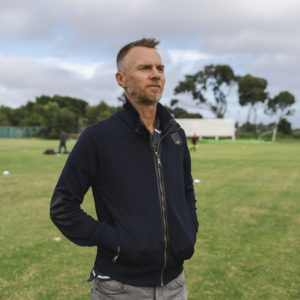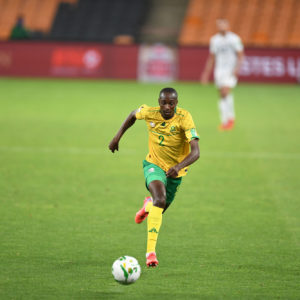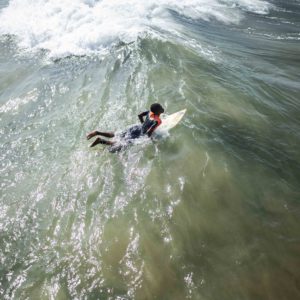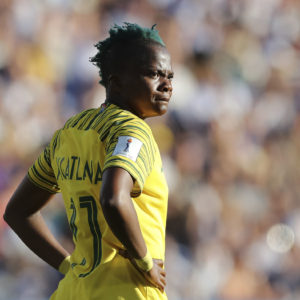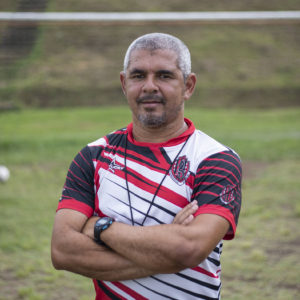The making of Nkosingiphile Ngcobo
The Kaizer Chiefs’ exciting midfielder had a difficult journey to the top, including a stint in an operation that is accused of peddling young footballers for profit.
Author:
3 May 2022
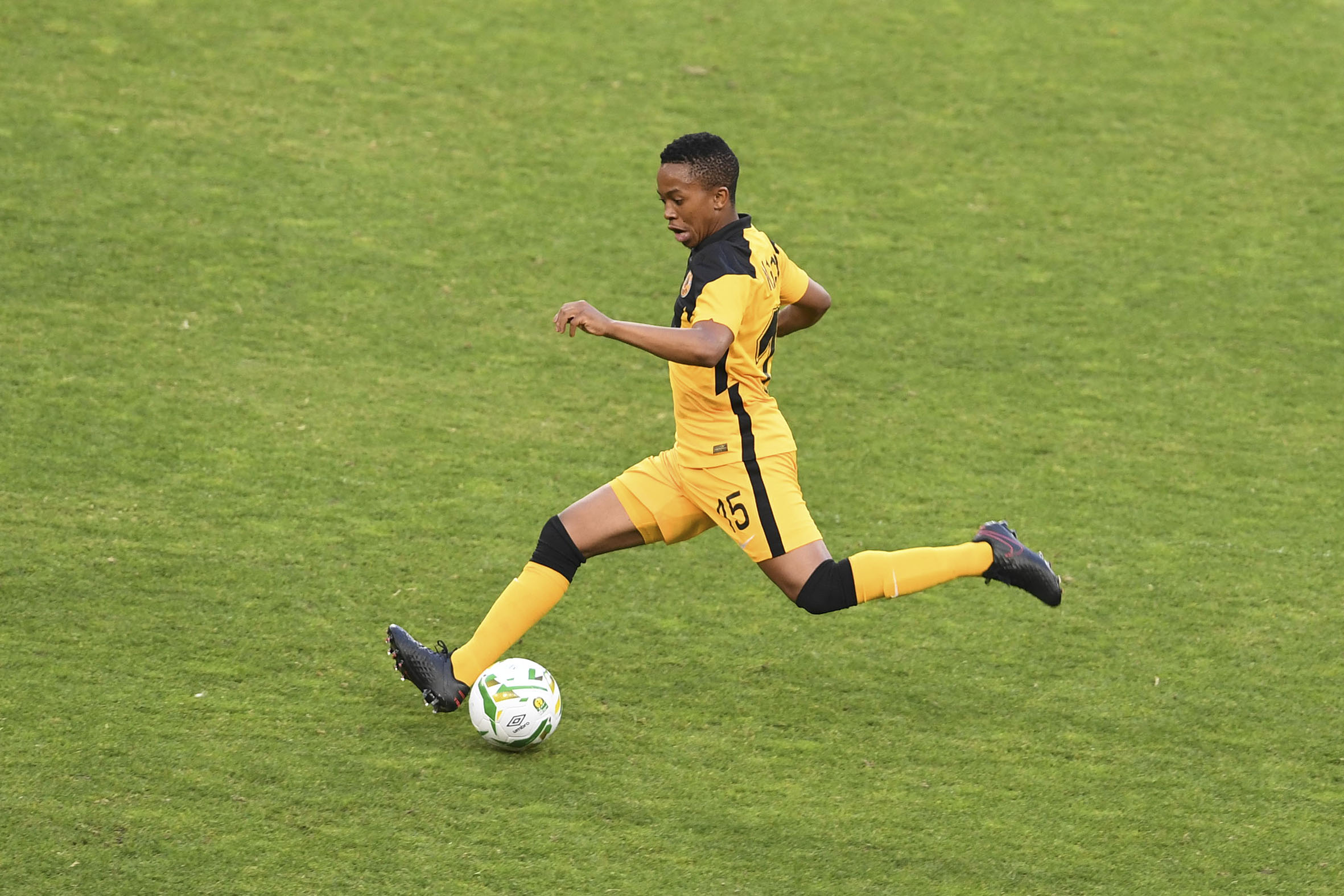
The challenges Nkosingiphile Ngcobo faced in fighting to earn game time at Kaizer Chiefs under former coach Stuart Baxter this season pale in comparison with the tough route he negotiated into professional football as a teenager.
Baxter parted ways with Amakhosi on 21 April, and one of the sticking points between club and coach was apparently that the Briton resisted fielding the club’s emerging talent, notably Ngcobo.
KwaMafunze in Elandskop, where Ngcobo grew up, is far enough past the outskirts of Pietermaritzburg’s sprawling township of Edendale to be called rural. With his father Sicelosami unemployed, Ngcobo’s mother Thembelihle, a primary school teacher in Bulwer about 90km away, supported her husband and their three sons financially. She came home on weekends.
Related article:
“I wouldn’t say it was so hard growing up in KwaMafunze,” Ngcobo, now 22, recalls of his younger years. “But maybe if I compare it to where I live now in Johannesburg, that’s where I see we didn’t have great opportunities.”
Ngcobo attended Langsyde Primary and St John Paul II High School in Elandskop, a Catholic secondary school where “it was strict, but it was a good school. It made a big impact on my discipline.”
Sicelosami and Thembelihle both played football, which explains the genes. Ngcobo’s mother kicked a ball at a time when women’s football teams were not a known phenomenon. The sport was offered at her boarding school.
The start of Mshini
School sports were barely organised in the area, so Ngcobo, a product of street football who grew up with a ball or recognisable substitute at his feet, played for local club Arsenal in KwaMafunze from the age of nine. He joined AmaRoto, a team in Edendale, at 13. He got his first experience of proper training at AmaRoto under coach Bongani Zuma, and it would change some of his teammates’ lives.
“I always knew I was talented. I got the nickname ‘Mshini’ [machine] when I was very young. Where it started getting into my heart that I wanted to be a professional player was when I joined AmaRoto,” Ngcobo says.
“At Arsenal it was about facing another side, the coach puts out a team and you play. AmaRoto had a plan for training, so the technique started improving and I started getting stronger. So Bongani Zuma did polish me a bit.”
Related article:
Ngcobo is aware that what comes next is the “most interesting part” of his story. “Bongani Zuma took almost the whole team to stay in Johannesburg in New Canada Road, Pennyville [near Orlando Stadium in Soweto]. He rented a three-bedroom house for about 30 of us to stay in. We’d train every day before going to school, come back, have about two hours’ study time, then train again. That was the toughest period, but a time that was very important for me.”
Ngcobo says the 30 boys spent “about two years” crammed into the three-bedroom RDP house. Parents of the young players paid a monthly fee to Zuma. “Every few months Bongani Zuma would take players to Bidvest Wits for trials, a few weeks later others to Jomo Cosmos. Before I joined Chiefs I was on trial at Cosmos for about three weeks.
“Before I signed, Coach Zuma said, ‘Let’s leave Jomo [Sono, Cosmos’ owner]. Let’s go to Chiefs.’ Myself, Wiseman Meyiwa, Luyanda Mdlalose and Sibongiseni Hlengwa went to Chiefs for assessment and after a few weeks, we all got signed.”
There were players who joined the developments of Wits, SuperSport United and Mamelodi Sundowns, Ngcobo says. To his knowledge, just one, striker Lungelo Bhengu at Maritzburg United, is playing professionally today.
Lunch boxes for school
The contrast between that RDP house and the accommodation at the Kaizer Chiefs Village in Naturena, where Ngcobo was part of the first intake in 2014 at the spanking new academy, could not be more stark. “Life was better. We’d go to school with lunch boxes,” says Ngcobo.
The raw teen was refined into a junior international who represented South Africa’s Under-17s and Under-20s, as well as the Under-23s at the Tokyo Olympics last year. After his Chiefs senior team breakthroughs of promotion under Steve Komphela in 2018, and a debut and more matches under Ernst Middendorp in 2019-2020, Ngcobo played 40 games under Gavin Hunt in the 2020-2021 season. That included a crucial role in Amakhosi’s path to their historic first CAF Champions League final.
Related article:
The coaches who set up Chiefs’ revamped academy, a multimillion-rand development across Lena Road from the original Chiefs Village, were former stars of the club. The late 1970s great and longest-serving captain Ryder Mofokeng was the administrator; 1980s and 1990s stars Ntsie Maphike and Donald “Ace” Khuse coached the Under-19s and reserve side; and stylish 2000s winger Arthur Zwane served as the Under-17s coach. The coaches fell under the influential auspices of coaching instructor Conti Kubheka.
It was Zwane who recruited 15-year-old Ngcobo to the Under-17s. Also among that first intake in 2014 were Given Thibedi, Happy Mashiane, Sabelo Radebe, Meyiwa, Mdlalose and Njabulo Blom – strong players who later impressed in the reserves, some earning first-team stardom, alongside whom Ngcobo flourished. Meyiwa made a big impression in the top side before his career ended tragically in a horrific car accident that left the midfielder in a wheelchair in 2018.
Dog-eat-dog situations
Zwane vividly recalls talking to Zuma, and the RDP house. “He approached me and told me about having young, good players from KwaZulu-Natal,” says the now assistant coach at Chiefs, who has taken over as caretaker with Dillon Sheppard since Baxter’s departure. “I went to check out the house. It did not sit well with me. It was crowded, in terms of health. I wasn’t happy about it.”
What also made Zwane uncomfortable was the apparent money-making aspect of the arrangement. He concedes, though, that without Zuma’s initiative, Ngcobo may never have been discovered. What Zwane saw brought back memories of some of the harsh scenes he witnessed while playing a stint with Santos in Brazil in 1996, at the age of 22.
Related article:
“It seemed dodgy, though we don’t have the full details. Knowing too where I come from as a player, and my time in Brazil where it’s dog-eat-dog to survive, those kids sometimes travelled 40 hours hoping they would get a team to try out for. I don’t know what it’s like now, but when I was there it was terrible. And I see some similarities between us and Brazil with our kids, especially from rural areas.
“And you have to decide whether to cut the guy [Zuma] off completely. Because as much as he might be causing damage, he’s also doing something others with resources haven’t done. Those players are getting exposed to clubs. You try to help him see the things he’s capable of seeing by spotting talented players, but also not going about it in a damaging way.”
Attempts to get comment from Zuma were unsuccessful. “I did cut contact with him,” Zwane says. “And we had to take in the players because what the club needed was to say, ‘Let’s protect the special talents.’ They did well. What happened to Wiseman was for a reason and we’re still looking for answers today. Nkosi has been a humble young man, very disciplined, he listens. His home situation was not easy too. That’s one of the reasons I had to move him to the Village, when I found out how tough the situation he came from was.”
Players with special attributes
The Ngcobo of today beats players, gets in the area and scores goals, so is an easy fan favourite. Even then, much of his class is refined and understated, not as flamboyantly skilful as South African fans often prefer.
Zwane says the young Ngcobo would not have attracted the attention of most youth coaches. “He was very sluggish. You could see good touches and that he was highly technical. But he couldn’t protect the ball well. If you were looking for a player who could keep the ball, pass at the right time and use speed and dribble, Mshini was not that player.
“What I saw was he could come out of tight situations with ease, not by applying a piece skill that would make everyone say wow, but just by controlling the ball he would easily beat two or three players. He would sell a dummy and already know there were two or three players free on the other side. He had that vision. In the game today there are few players of that calibre. He sees things other players can’t see.
“We were looking for different players with special attributes – knowing that Chiefs had produced the likes of the late Ace Ntsoelengoe – the midfielders, the thinkers, the people who could control the game and everyone would dance to their music. We saw that in Mshini.”
Related article:
The process of polishing the diamond was not without its clashes with famously disciplinarian Zwane. “Mshini used to go to my younger brother [Ivan Zwane] and say, ‘I don’t know what to do any more, maybe the guy doesn’t like me.’ My brother would tell me that.
“I would confront Mshini later and say, you think things should be rosy for you? It’s not going to happen like that. You’re going to have to dig deeper because you don’t know what’s waiting for you on the other side, in the first team. There they demand results. You’ll meet people on the street who will tell you nonsense, where to get off and that you’re useless. And if I don’t make you stronger this side, you won’t be able to deal with those situations.”
A nippy, dangerous player
It’s because of this guidance that Ngcobo has matured into the player he is today.
“He’s reserved, but a very intelligent lad. That’s why he’s attending university,” says Zwane. “He was doing law and he changed to something with property and business. He’s willing to learn, he’s got that drive. I knew we just needed to sharpen his decision-making, improve his technical ability, and put the element of speed and precision passing. Eliminating players too, because that’s one thing he didn’t have at all.”
Related article:
Zwane says that while Ngcobo physically got over the nine-month Achilles injury that denied him a place with coach Thabo Senong’s Amajita, who competed at the 2019 Under-20 World Cup in Poland, the player has only recently begun recovering psychologically.
“Just before the injury he was becoming a nippy, dangerous player in the reserve team who scored a lot of goals. He’s getting better again. It’s been mental, I think. The good thing is he’s a disciplined boy. He’ll come back well. And we know very soon he’ll be ready. Actually he’ll be something else, not just for Chiefs but for the country. He’s a special player, there’s no doubt.”

